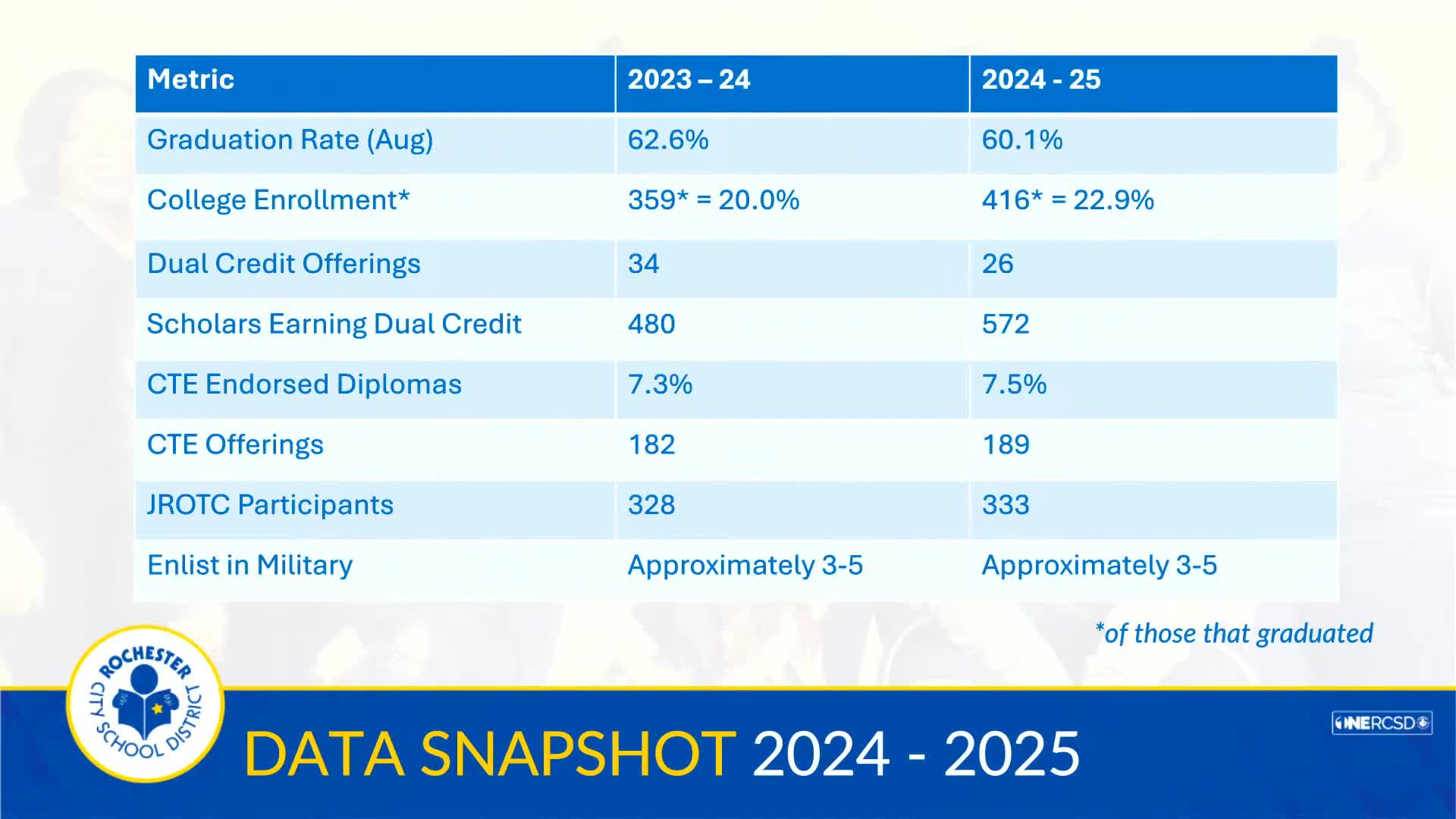Board hears college‑career‑military readiness framework; staff propose three‑year rollout

Summary
District staff presented a draft college, career and military readiness framework Oct. 30 that aims to guarantee exposure to post‑secondary options for every RCSD graduate and calls for a three‑year, equity‑focused rollout backed by home‑school‑community partnerships.
The Rochester Board of Education received a presentation Oct. 30 outlining a proposed college, career and military readiness framework intended to ensure every graduate leaves with meaningful post‑secondary options.
Superintendent Lesli Rosser said the framework is a first step and would require further work and partnerships: “This is simply a framework. There’s a lot more work that needs to be put into this framework, a lot more partnerships that need to be connected,” he told the board.
Marlene Blocker, who led the presentation, said the framework focuses on three pillars — college knowledge, career knowledge and military knowledge — each with three actions: prepare, expose and enroll/advance. Blocker presented two‑year summary data the team used to design the framework: a graduation rate near the low‑60s (62.6% and 61% in the two referenced years), roughly 20% of graduates enrolling in college, 480 and 572 students earning at least one dual credit in the two years listed, CTE endorsed diplomas at about 7.3%–7.5%, and roughly 300 students participating in JROTC in each of the last two years; the number of students who enlisted in the military was cited as three to five.
Blocker outlined school‑level actions (guaranteed core courses, dual‑credit and AP access, PSAT/SAT administration), exposure (college visits, CTE fairs, work‑based learning), and enrollment steps (FAFSA/support, application assistance, work permits and resumes). She emphasized aligning school, home and community efforts and said committees comprising staff, students and community members should define specific, measurable guarantees (for example, a set number of college visits and job fairs per scholar) and a three‑year rollout plan to support sustainability.
Board members welcomed the concept and emphasized early exposure and scale. Commissioner Santiago asked about local vendor and employer alignment; Commissioner Griffin stressed matching leaders to roles and building the infrastructure to sustain the plan. Vice President Malloy and others suggested expanding paid, credit‑bearing summer internships and strengthening middle‑school exposure so students can make informed high‑school choices.
Next steps outlined by staff included forming pillar committees, defining the district’s role versus family/community contributions, and creating a three‑year implementation and progress‑monitoring plan. Staff said the framework will inform the 2026–27 budget development.
Provenance: Presentation and Q&A during the Oct. 30 business meeting (presentation begins at 02:57:25, Q&A and discussion follow).

